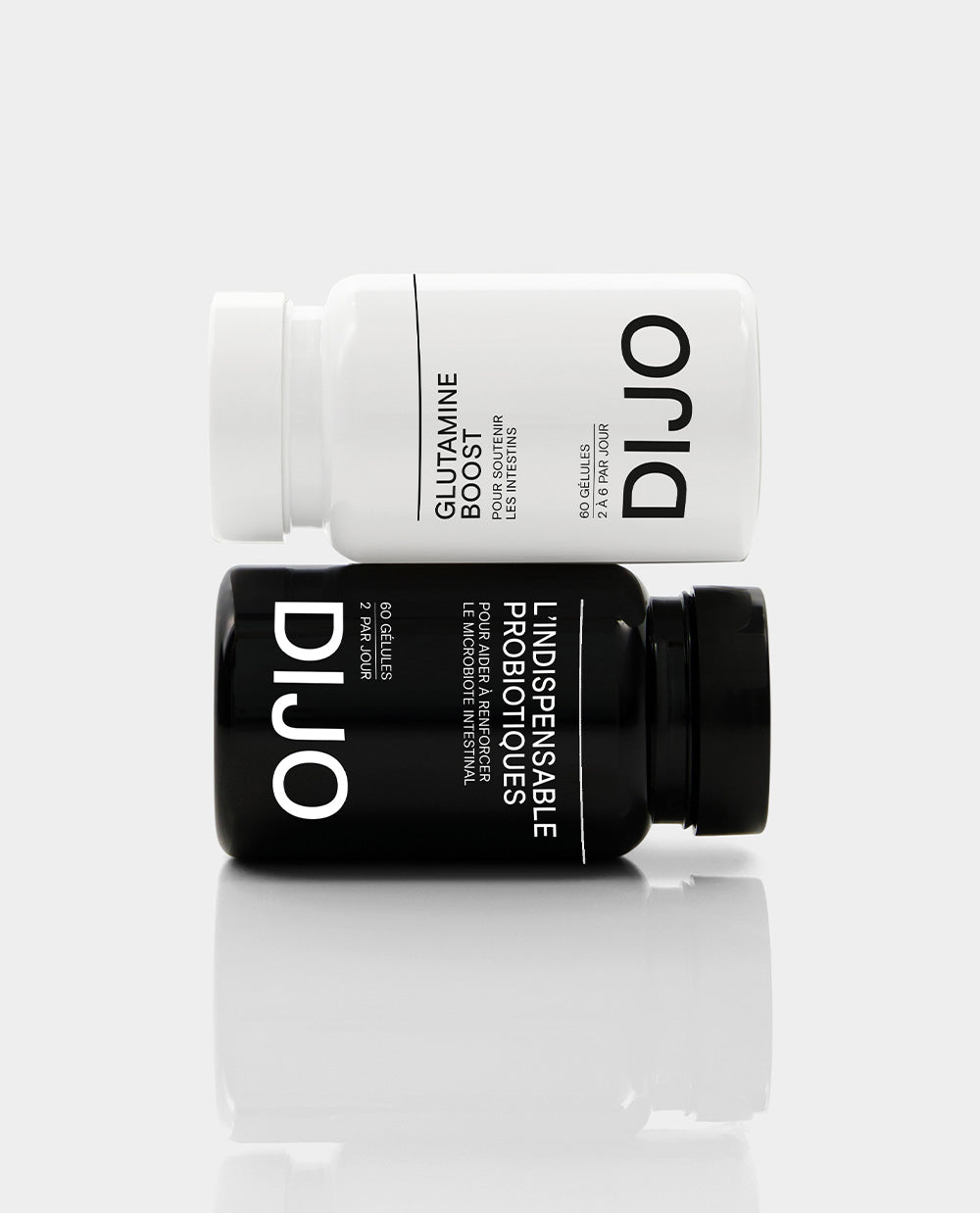What is the role of the intestine?
The intestine is an organ that naturally has pores in its walls , which allow essential nutrients from the food bolus to pass through them, and throughout the rest of the body. It also represents a natural barrier against all harmful substances that can travel through our digestive tract, particularly through the food bolus, thus preventing them from passing through the rest of the body. A healthy intestine is therefore naturally permeable, but as in many cases: when it is too much, it is harmful.
Indeed, a healthy intestine allows particles smaller than 4 Å in radius to pass through, but if the permeability of the intestine increases, particles up to 10-15 Å in radius can pass through even though they are not supposed to. do (Å being the unit of measurement of the size of these particles). A lasting increase in intestinal permeability will therefore have harmful effects: researchers agree that intestinal porosity, also called intestinal hyperpermeability , is a trigger for many chronic diseases, metabolic disorders and systemic diseases.
What are the causes of intestinal porosity?
The causes of intestinal porosity are numerous; many mechanisms could come into play. Among them: alcohol, stress , bacterial infection, undernutrition/malnutrition, biliary obstruction, immune deficiency, certain treatments such as prolonged use of non-inflammatory anti-inflammatory drugs. -steroid, gluten consumption despite diagnosed celiac disease, nutritional deficiencies...
But the most common cause is surely intestinal dysbiosis , that is to say an imbalance in the composition of the intestinal flora , a phenomenon to which we are all more or less subject. Indeed, the loss of part of our beneficial strains, in favor of the installation of harmful strains, modulates intestinal immune responses and increases the chances of developing hyperpermeability of the intestinal mucous membranes.
What are the symptoms of leaky gut?
We do not feel intestinal porosity . It is therefore difficult to think about this when you experience the symptoms, because they can also be linked to other illnesses. However, here is a non-exhaustive list of certain symptoms that have been identified with intestinal porosity :
- Intestinal disorders: chronic diarrhea and constipation , gas , bloating
- Weakened immunity
- Headaches, memory loss, difficulty concentrating
- Chronic fatigue
- Skin problems: acne, eczema, etc.
- “Cravings”: irrepressible sugar cravings
- Mental disorders:depression , anxiety, ADHD
How do I know if I am prone to intestinal porosity?
The diagnosis of this syndrome is rather complicated to make, because we do not think about it directly when we feel the symptoms, and these are signs that we often seek to treat directly without worrying about the cause initially. time (for example, we seek to treat constipation when it occurs, without really focusing on the causes of it).
However, the doctor may prescribe tests: a dosage of certain blood compounds, certain urinary compounds, tests associated with underlying pathologies, respiratory tests which make it possible to detect dysbiosis or a defect in the absorption of carbohydrates, etc.
How to treat intestinal porosity?
If you experience some of these symptoms and are exposed to one or more risk factors, it is a good idea to see a doctor for a diagnosis. He may prescribe targeted analyzes such as a dosage of certain blood compounds, certain urinary compounds, tests associated with underlying pathologies, respiratory tests which can detect dysbiosis or a defect in the absorption of carbohydrates, etc.
After that, the treatments are varied, which allows a broad spectrum of action to relieve your intestinal porosity . Depending on the causes identified, appropriate treatment will be prescribed.
1 – Take a course of probiotics to treat intestinal porosity
Firstly, it is more than essential to restore a good balance in your intestinal microbiota . For this, nothing is more effective than probiotics , these strains beneficial to our intestinal flora. Our Concrete Intestines pack is also a very good base. It contains in particular the essential probiotics : a concentrate of good bacteria essential to our body, containing 28 billion CFU per dose, to ensure that a high concentration of microorganisms reaches the intestines. Combined with a diet rich in prebiotic fiber, probiotics will have an even greater beneficial effect.
2 – Take glutamine to relieve leaky gut symptoms
Once a state of balance has been reached in the microbiota, we recommend a treatment that has proven effective in strengthening the intestinal barrier: glutamine supplementation. Research has shown that taking 1g of glutamine per day relieves intestinal permeability that is already well established. Indeed, glutamine , an amino acid, serves as an essential fuel for certain players in the intestinal barrier. To relieve overly permeable intestines, DIJO has created Glutamine , a concentrate of 3g of L-glutamine to maintain the integrity of the intestinal mucosa.
3 – Favor foods rich in polyphenols
We also recommend a diet rich in polyphenols, which relieve inflammation and help treat dysbiosis. They can be found in fruits and vegetables, but there are also other important sources: spices, spices, and aromatic herbs. It is wise to undergo a complete check of your dietary deficiencies: in fact, treating them can help relieve the symptoms of intestinal porosity.
4 – Test the FODMAP diet
In certain cases associated with irritable bowel syndrome , the doctor may prescribe a diet without FODMAP fiber , finally if the syndrome is associated with celiac disease, it will then be necessary to eliminate gluten.
Sources:
[1] M. Campieri, C. Fiocchi and SB Hanauer. Inflammatory Bowel Disease: A Clinical Case Approach to Pathophysiology, Diagnosis, and Treatment , Springer, March 31, 2002, 356 p., p. 7
[2] Suzuki, “Regulation of intestinal epithelial permeability by tight junctions”, Cellular and Molecular Life Sciences , vol. 70, no 4, February 1, 2013, p. 631–659
[3] O'Hara and Buret, “Mechanisms of intestinal tight junctional disruption during infection”, Frontiers in Bioscience , vol. 13, no 13, 2008, p. 7008–21
[4] Viljoen, M., Panzer, A., & Willemse, N. (2003). Gastrointestinal hyperpermeability: a review. East African medical journal , 80 (6), 324–330.
[5] Ghouzali, I., Lemaitre, C., Bahlouli, W., Azhar, S., Bôle-Feysot, C., Meleine, M., Ducrotté, P., Déchelotte, P., & Coëffier, M. (2017). Targeting immunoproteasome and glutamine supplementation prevent intestinal hyperpermeability. Biochimica et biophysica acta. General subjects , 1861 (1 Pt A), 3278–3288.
















